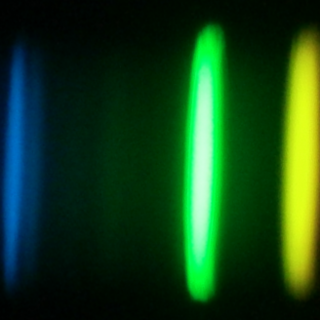Ramírez, I.; Allende-Prieto, C.
Bibliographical reference
The Astrophysical Journal, Volume 743, Issue 2, article id. 135 (2011).
Advertised on:
12
2011
Journal
Citations
177
Refereed citations
166
Description
We derive a self-consistent set of atmospheric parameters and abundances
of 17 elements for the red giant star Arcturus: T eff = 4286
± 30 K, log g = 1.66 ± 0.05, and [Fe/H] = -0.52
± 0.04. The effective temperature was determined using model
atmosphere fits to the observed spectral energy distribution from the
blue to the mid-infrared (0.44 to 10 μm). The surface gravity was
calculated using the trigonometric parallax of the star and stellar
evolution models. A differential abundance analysis relative to the
solar spectrum allowed us to derive iron abundances from equivalent
width measurements of 37 Fe I and 9 Fe II lines, unblended in the
spectra of both Arcturus and the Sun; the [Fe/H] value adopted is
derived from Fe I lines. We also determine the mass, radius, and age of
Arcturus: M = 1.08 ± 0.06 M &sun;, R = 25.4 ±
0.2 R &sun;, and τ = 7.1+1.5 -
1.2 Gyr. Finally, abundances of the following elements are
measured from an equivalent width analysis of atomic features: C, O, Na,
Mg, Al, Si, K, Ca, Sc, Ti, V, Cr, Mn, Co, Ni, and Zn. We find the
chemical composition of Arcturus typical of that of a local thick-disk
star, consistent with its kinematics.
Related projects

Chemical Abundances in Stars
Stellar spectroscopy allows us to determine the properties and chemical compositions of stars. From this information for stars of different ages in the Milky Way, it is possible to reconstruct the chemical evolution of the Galaxy, as well as the origin of the elements heavier than boron, created mainly in stellar interiors. It is also possible to
Carlos
Allende Prieto